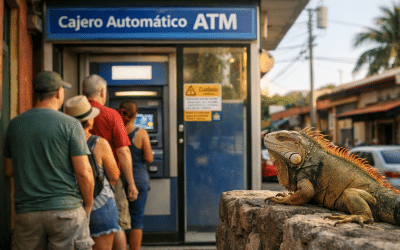Buying a slice of paradise in Costa Rica sounds like the dream—and for many, it is. But before you pack your bags and wire your funds, there’s a less glamorous side to the process: paperwork. While Costa Rica is welcoming to foreign investors and property buyers, its real estate process runs on a unique legal rhythm. From navigating titles and permits to taxes and legal representation, understanding the terrain will help you avoid the classic missteps newcomers make. Here’s how to make sure your Costa Rican real estate journey is smooth, secure, and entirely above board.

Do foreigners have the right to own property in Costa Rica?
Yes, foreigners have the same property rights as Costa Rican citizens.
Whether you’re buying beachfront land or a mountain retreat, the Costa Rican Constitution guarantees equal ownership rights to locals and foreigners alike. You don’t need residency or special permission to buy—just a solid understanding of the legal steps.
How do property titles work in Costa Rica?
Most titled land in Costa Rica is registered with the National Registry and searchable by anyone.
Each property should have a unique “Folio Real” number, which is the property ID. This links to a centralised database where legal status, ownership history, mortgages, liens, and encumbrances are recorded. Always verify the title’s status before placing an offer.
What is the role of a lawyer when buying property?
A qualified real estate attorney ensures the legal integrity of the transaction and protects your interests.
In Costa Rica, lawyers are essential for due diligence, contract review, and registry checks. Many also act as notaries, giving them legal authority to register property transactions with the National Registry. Choosing a bilingual attorney with real estate experience is worth every colón.
What’s the difference between a lawyer and a notary in Costa Rica?
A notary in Costa Rica is a specially licensed lawyer with the power to register official acts with the government.
Unlike in some countries, notaries here do more than witness signatures. They draft and legalise deeds, contracts, and public documents. A real estate deal can’t be registered without one.
Are there any restrictions on buying beachfront property?
Yes—maritime zone land is subject to special regulations and limitations.
The first 200 metres from the high tide line is designated as the Maritime Zone. The first 50 metres are public and cannot be owned or developed. The next 150 metres can only be leased through a concession, which comes with conditions and restrictions. These properties should be approached with caution and thorough legal guidance.
What taxes and fees should you expect when buying?
Buyers usually pay about 3.5% to 4.5% of the property value in closing costs.
This includes:
Transfer Tax
Roughly 1.5% of the registered property value. It’s a one-time fee paid at closing.
Legal Fees
Usually 1% to 1.5% of the transaction value, though some lawyers charge a flat fee.
National Registry Fees and Stamps
Approximately 1% of the value, these are mandatory charges for registering the property under your name.
How can I avoid common pitfalls in Costa Rican real estate?
Thorough due diligence, trusted professionals, and patience are your best defences.
Buy only titled property
Untitled land may be cheap, but the legal headaches can last years.
Hire an experienced lawyer
One who is independent from the seller or agent ensures unbiased guidance.
Use an escrow service
Escrow protects your funds until all legal conditions are met.
Verify building permits
If you’re buying land to develop, make sure construction permits are in place or obtainable.
Don’t skip the survey
Have a topographer confirm the boundaries match the registry record.
FAQ
Do I need to be in Costa Rica to close the deal?
No. You can grant a power of attorney to your lawyer if you can’t be present for the signing.
Can I put the property in a corporation’s name?
Yes, many buyers use a Costa Rican corporation for liability protection and tax planning.
Are property taxes high in Costa Rica?
No. They’re relatively low—about 0.25% of the declared value annually.
Is financing available?
Financing options for foreigners are limited. Most purchases are made in cash or with private lending. What if there are squatters on the land?
Always inspect the property in person and ask your lawyer to verify it’s free of third-party possession. Squatter laws in Costa Rica can complicate ownership if not addressed







